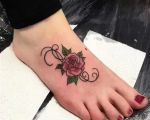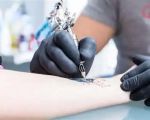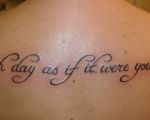How Much Is Insurance for a Tattoo Shop? A Guide to Coverage and Costs
- Understanding Tattoo Shop Insurance
- Types of Insurance for Tattoo Shops
- Factors Affecting Tattoo Shop Insurance Costs
- Average Cost of Insurance for Tattoo Shops
- How to Save on Tattoo Shop Insurance
Understanding Tattoo Shop Insurance
Opening and running a tattoo shop is an exciting and creative venture, but it comes with its own set of risks. As a tattoo artist and shop owner, I quickly realized that having the right insurance is crucial for protecting both my business and my clients. If you’re wondering how much insurance for a tattoo shop costs, you're not alone. Tattoo shop insurance is a specialized type of coverage that helps mitigate the risks associated with running a business that involves physical touch, artistic creation, and public interaction.
Insurance for a tattoo shop isn’t just a good idea – it’s often required by law or by landlords and business contracts. The type of insurance you need will depend on the services you offer, your location, and your business structure. Throughout this article, I’ll break down the costs, types of coverage, and what factors can influence the price of insurance for tattoo shops. If you’re planning to open a tattoo shop or already have one, understanding these aspects can help you make an informed decision about your coverage.
Types of Insurance for Tattoo Shops
As I learned when opening my own tattoo business, there are several types of insurance that you should consider to ensure you're fully protected. Below are the most common types of coverage that tattoo shop owners should consider:
1. General Liability Insurance
General liability insurance is one of the most important types of coverage for any business, including tattoo shops. This insurance protects you against claims for bodily injury, property damage, and personal injury caused by your business operations. For example, if a client slips on the floor while walking into your shop or if there’s damage to a neighboring property during a procedure, general liability insurance will cover the costs. I’ve found that general liability insurance is especially important in the tattoo industry, where risks like infections or allergic reactions are a concern.
2. Professional Liability Insurance
Also known as errors and omissions insurance, professional liability insurance protects against claims of negligence, mistakes, or failure to perform your professional duties. In the tattoo business, this could cover claims if a client believes their tattoo was done incorrectly or resulted in an injury. For example, if a client experiences an allergic reaction to the ink used in their tattoo, this insurance will help cover medical expenses and legal costs if they decide to sue. As a tattoo artist, I found professional liability insurance essential for peace of mind.
3. Property Insurance
Property insurance protects the physical assets of your business, such as the building, equipment, and inventory. This includes coverage for things like fires, theft, or natural disasters. If a fire were to break out in your shop and damage your tattoo equipment or furniture, property insurance would cover the costs of replacing or repairing these items. I personally opted for property insurance when I opened my tattoo shop, as it provides valuable coverage for the shop's physical property.
4. Workers' Compensation Insurance
If you have employees working in your tattoo shop, workers' compensation insurance is typically required by law. It covers medical expenses and lost wages if an employee is injured while working. For example, if one of my employees were to get injured while performing a tattoo, workers' compensation would cover their medical bills and lost income during recovery. Even if you’re a solo artist, it’s a good idea to have this coverage to protect yourself from workplace accidents.
5. Business Interruption Insurance
Business interruption insurance helps cover lost income if your tattoo shop is forced to close temporarily due to unexpected events, such as a fire, flood, or other natural disaster. For instance, if a storm caused damage to the shop, and we needed to close for repairs, this insurance would help cover our lost income during that period. It’s an essential policy for ensuring that your shop can stay financially stable, even if you encounter unforeseen closures.
Factors Affecting Tattoo Shop Insurance Costs
The cost of insurance for a tattoo shop can vary depending on several factors. Here are some of the key elements that influence the price of coverage for tattoo businesses:
1. Location of the Tattoo Shop
Where your tattoo shop is located can significantly affect your insurance premiums. For example, a tattoo shop located in a busy urban area with higher crime rates may have higher premiums than one in a quieter, rural area. Additionally, local regulations and state laws regarding insurance requirements can also impact costs. I found that my shop’s location in a city with a high population density resulted in higher premiums, but it also attracted more clients.
2. Size of the Shop
The size of your tattoo shop can also influence your insurance costs. A larger shop with more employees and equipment will likely have higher premiums due to the increased risk and higher value of assets being covered. If you plan to expand your tattoo business or add more stations, you may need to adjust your coverage to reflect these changes. When I expanded my shop, my insurance premiums increased as well, but it provided greater coverage for the additional space and equipment.
3. Claims History
If your tattoo shop has a history of insurance claims, this can raise your premiums. Insurers may see a history of claims as an indicator of higher risk, which could lead to higher rates. For example, if your shop had a past incident involving client injuries or property damage, your insurance provider may charge higher premiums to cover the increased likelihood of similar incidents occurring in the future. Maintaining a clean record of claims can help keep your insurance costs down.
4. Type of Services Offered
The type of tattoo services you provide may also affect your insurance rates. If your shop offers additional services, such as body piercing, it may need additional coverage for those activities. Some tattoo shops specialize in high-risk tattoos, such as cosmetic tattoos or medical tattoos, which could require specialized insurance. I found that offering body piercings along with tattoos led to higher insurance costs due to the added liability.
Average Cost of Insurance for Tattoo Shops
The cost of insurance for a tattoo shop can range from a few hundred dollars to several thousand dollars per year, depending on the size of the business, location, and the coverage needed. Based on my research and experience, most tattoo shop owners can expect to pay anywhere from $500 to $3,000 annually for basic coverage. However, if you require more extensive coverage, such as for larger properties or additional liability protection, costs can increase accordingly.
For example, when I opened my tattoo business, my basic general liability insurance cost me around $800 per year. However, when I added workers' compensation and property insurance, my total annual premiums increased to approximately $2,000. Keep in mind that these costs can vary based on the factors mentioned earlier, so it’s important to shop around and get quotes from multiple insurers to find the best rate for your business.
How to Save on Tattoo Shop Insurance
While insurance is a necessary expense for tattoo shop owners, there are ways to reduce your premiums. Here are some strategies I’ve found helpful:
1. Bundle Your Policies
Many insurance companies offer discounts if you bundle multiple policies, such as general liability and property insurance. By purchasing all your insurance from the same provider, you can save money. I bundled my insurance policies with the same company, which helped reduce my overall costs.
2. Maintain a Safe Work Environment
Insurance companies may offer discounts for businesses that implement safety measures. For example, having proper sanitation practices, maintaining a clean and safe workspace, and ensuring that all equipment is well-maintained can reduce the risk of claims. I invested in employee training and implemented strict health and safety protocols in my shop, which ultimately helped lower my premiums.
3. Shop Around for the Best Rate
Finally, it’s important to shop around and get quotes from different insurance providers. Prices can vary significantly between insurers, so comparing policies and rates can help you find the best coverage for the lowest cost. I found that some providers offered better rates for the same coverage, so it’s always worth checking with multiple companies before making a decision.
In conclusion, while insurance for a tattoo shop is an essential expense, it’s possible to find affordable coverage that meets your needs. By understanding the types of insurance available, the factors that influence your premiums, and how to reduce costs, you can make an informed decision that protects both your business and your clients. Want to learn more about tattoo shop insurance or get started with coverage? Visit Computer Repair for expert advice and services!








